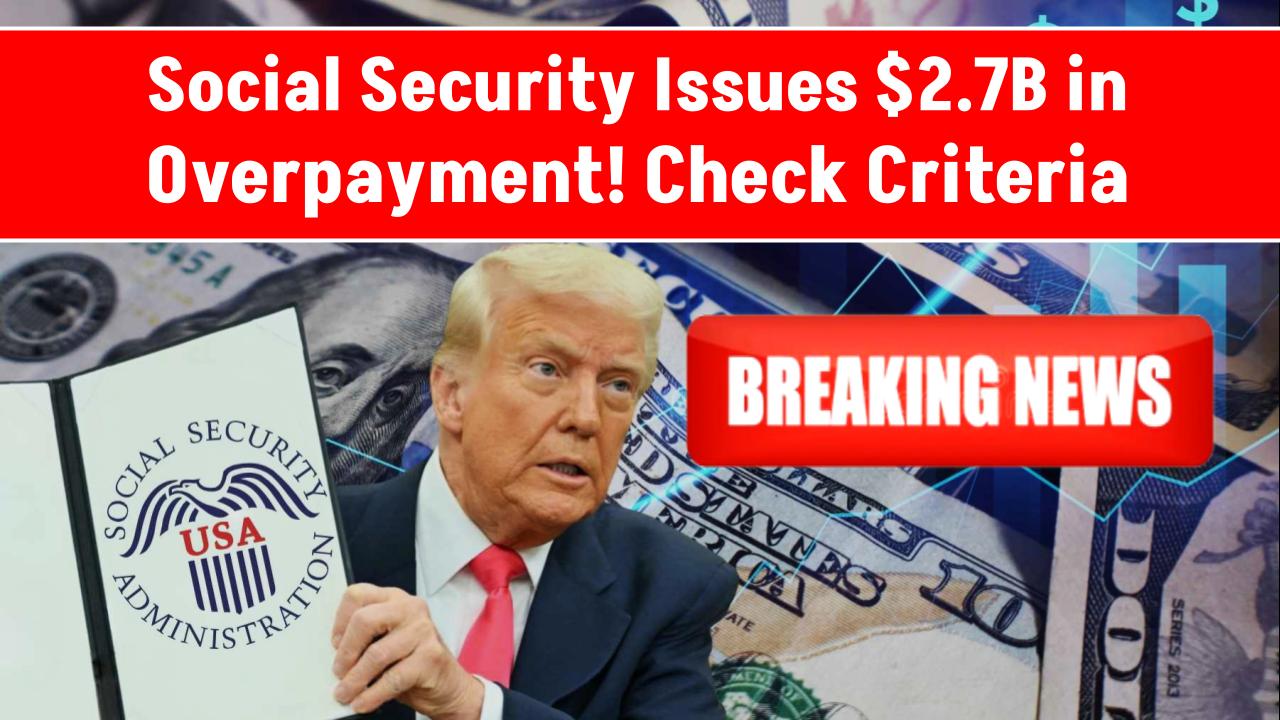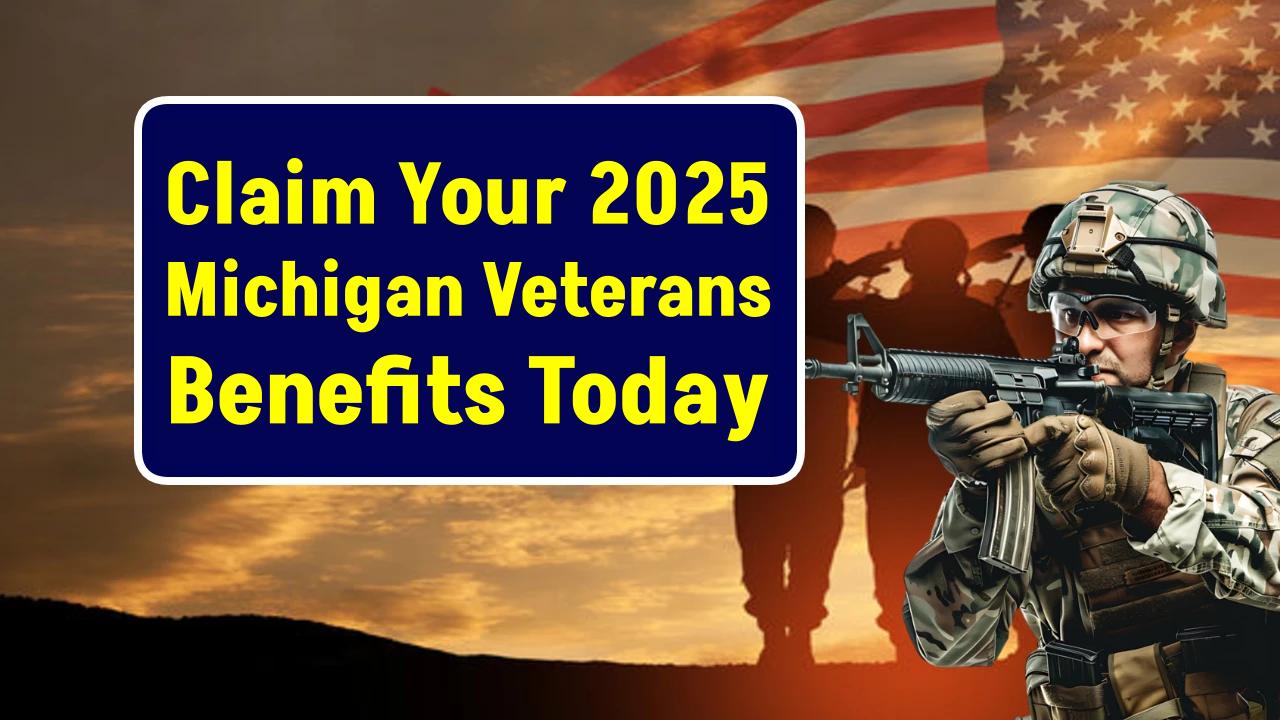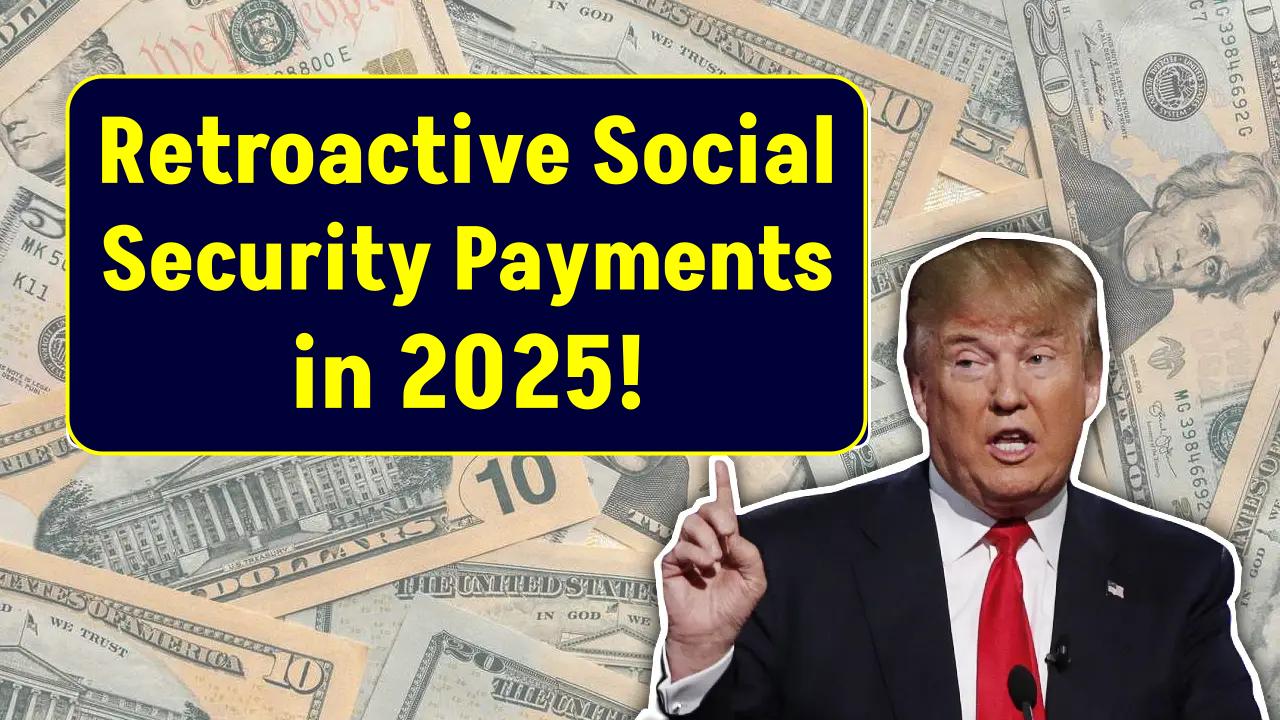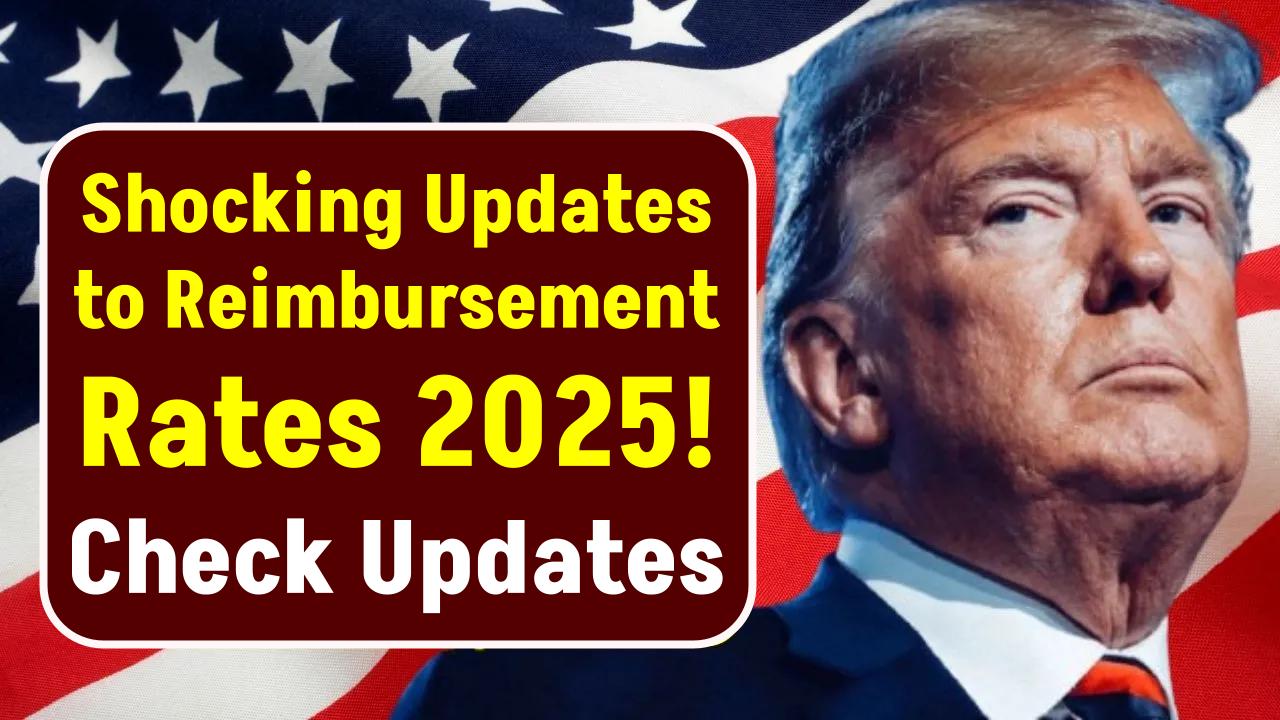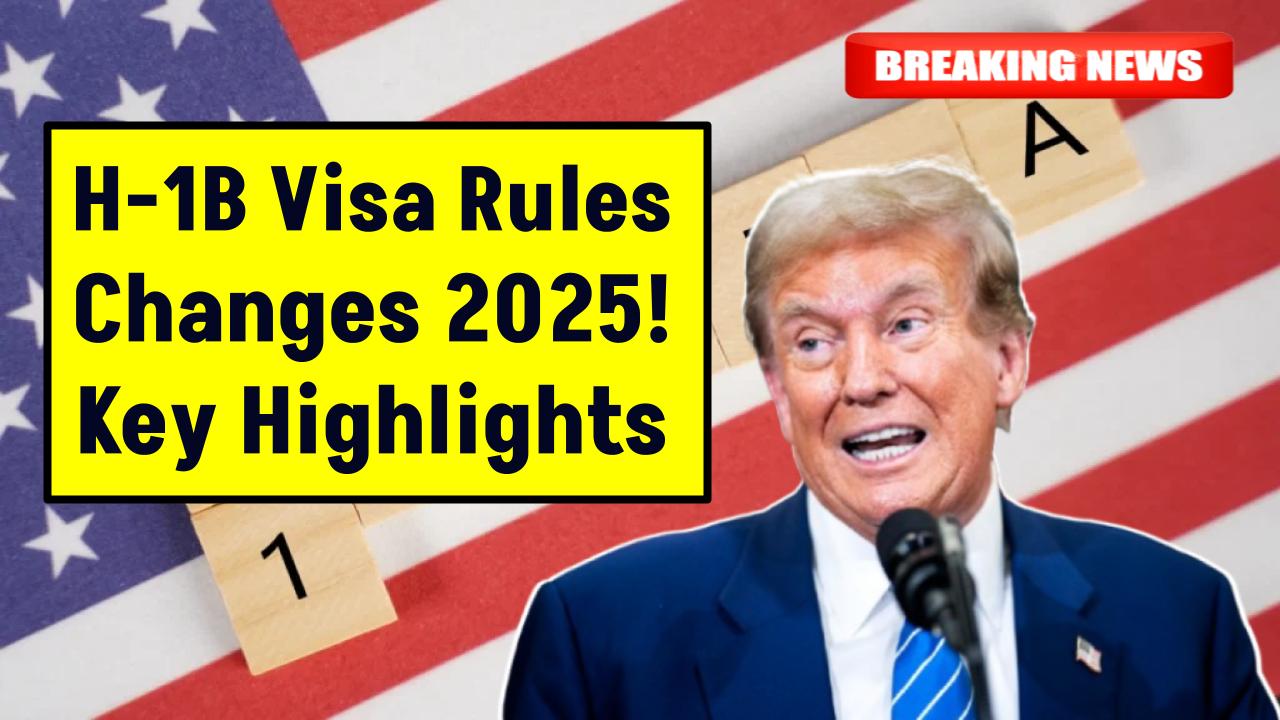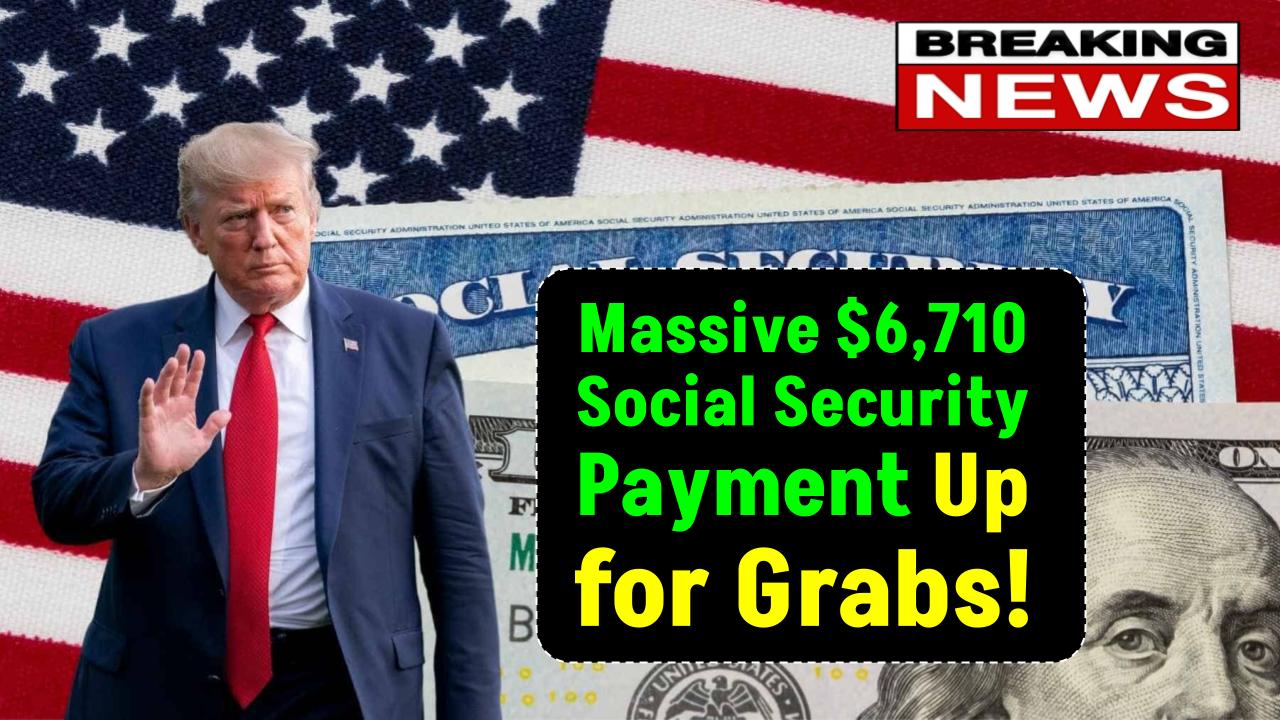Trump Announces Big Changes to SNAP Benefits — What You Need to Know!
Trump Announces Big Changes to SNAP Benefits – In a major policy update, Donald Trump has announced sweeping changes to SNAP benefits (Supplemental Nutrition Assistance Program), sparking both concern and curiosity among millions of American families. If you or someone you know relies on SNAP, these new changes could have a big impact on your grocery budget, eligibility, and the types of foods you can buy. In this article, we’ll break down exactly what these changes are, who they affect, when they will roll out, and what you can do to stay prepared.
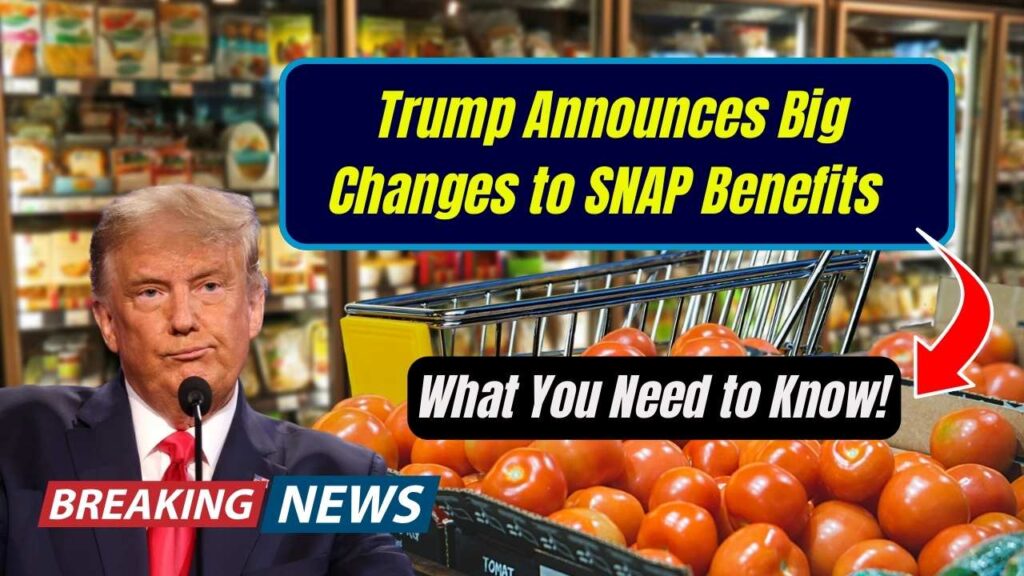
Trump Announces Big Changes to SNAP Benefits
| Key Details | Information |
|---|---|
| Policy Announcement Date | April 2025 |
| Main Changes | Stricter immigration checks, new food purchasing restrictions, possible SNAP funding cuts |
| States Involved in Food Restriction Requests | Arkansas, Indiana, Idaho, West Virginia |
| Potential Budget Cuts | $230 billion over 10 years |
| Implementation Timeline | Executive changes underway; Congressional votes expected May 2025 |
| Official Resource | Visit USDA.gov for SNAP Updates |
Trump’s announced changes to SNAP benefits mark a major turning point in how food assistance could work in America. From stricter immigration checks to health-focused purchase restrictions and potential budget cuts, millions of families could soon feel the effects. While some measures are already underway, others still need approval. Whether you’re a current SNAP recipient or someone who might qualify in the future, it’s crucial to stay informed, prepare ahead, and advocate if needed. With change on the horizon, knowledge, smart planning, and community support will be essential.
What Are SNAP Benefits?
SNAP, formerly known as food stamps, is a federal assistance program that helps low-income individuals and families afford nutritious food. Administered by the U.S. Department of Agriculture (USDA), SNAP serves over 41 million Americans each month. It provides a monthly benefit loaded onto an EBT (Electronic Benefit Transfer) card, which can be used to buy eligible groceries at authorized stores. Until now, the rules around SNAP have remained largely consistent across administrations—until Trump’s new policy initiatives in 2025.
What Changes Has Trump Announced for SNAP?
Let’s walk through the three biggest shifts that President Trump’s administration has introduced.
1. Stricter Immigration Verification
One of the most immediate changes is tougher immigration status checks for SNAP applicants.
- The USDA will now use Homeland Security’s SAVE (Systematic Alien Verification for Entitlements) database to cross-verify each applicant’s immigration status.
- States must ensure that undocumented immigrants are not receiving SNAP benefits, a move Trump describes as “protecting taxpayer dollars.”
- Applicants may face longer processing times due to these added verification steps. This aligns with Trump’s broader executive order to tighten welfare access for non-citizens.
2. Restrictions on What You Can Buy with SNAP
Trump’s administration is pushing to limit the types of foods that SNAP recipients can buy.
- States like Arkansas, Indiana, Idaho, and West Virginia have requested permission to ban sugary sodas, candy, and certain processed foods from SNAP purchases.
- This is part of the broader “Make America Healthy Again” campaign to encourage healthier eating habits among low-income Americans.
- If approved, SNAP users might only be allowed to buy essential groceries like fruits, vegetables, grains, dairy, and meat. Source: Food and Wine
3. Proposed Budget Cuts and Cost-Sharing with States
Perhaps the most controversial announcement is the proposal for deep funding cuts:
- Trump’s allies in Congress have suggested $230 billion in cuts to USDA programs over the next decade.
- States could be asked to share more of the SNAP funding burden, potentially resulting in uneven benefit amounts depending on where recipients live.
- This move could reduce the overall amount available to families or tighten eligibility requirements even further.
Timeline for Changes
| Change | Timeline |
|---|---|
| Stricter Immigration Verification | Immediate via Executive Order |
| Purchase Restrictions on Foods | Pending USDA approval of state requests |
| SNAP Budget Cuts and Cost-Sharing | Congressional review in May 2025 |
| While immigration-related verifications are already starting, the food purchase restrictions and funding adjustments are still under review and could take months to implement. |
Impact on Specific Groups
- Seniors: May face challenges if funding cuts limit assistance.
- Children: Nutritional outcomes could worsen without access to full benefits.
- Veterans: Many veterans relying on SNAP could see tightened eligibility.
Political Reactions and Public Response
Democrats and advocacy groups have strongly criticized the changes, calling them “punitive” and “harmful to vulnerable Americans.” Organizations like Feeding America and the Center on Budget and Policy Priorities (CBPP) have warned that millions could lose essential food support if these measures proceed. Meanwhile, supporters argue that the reforms are necessary to ensure that only eligible individuals receive benefits and to promote healthier lifestyles.
Possible Legal Challenges
Several legal experts predict that immigrant rights groups may file lawsuits challenging the stricter verification rules, citing concerns over potential discrimination and due process violations. Past efforts to tighten SNAP rules through executive actions have sometimes faced setbacks in federal courts.
How Will These Changes Affect SNAP Recipients?
Here’s a simple breakdown of what recipients might experience:
- More Paperwork: You may need to submit additional documentation to prove your immigration status or citizenship.
- Different Items Allowed: If your state adopts the food purchase restrictions, sodas, candies, and certain junk foods may no longer be eligible purchases.
- Possible Lower Benefits: If funding cuts pass, monthly SNAP amounts might be reduced, and eligibility rules could tighten.
What Should You Do If You Rely on SNAP?
Here’s some practical advice to stay ahead:
1. Keep Your Documents Ready
Make sure you have updated immigration or citizenship papers, Social Security records, and any other important documents easily accessible.
2. Focus on Healthier Purchases
Start planning meals around whole foods—fruits, vegetables, proteins—since processed snacks and sugary drinks may soon be banned from SNAP eligibility.
3. Stay Updated
Bookmark the USDA SNAP Updates Page and regularly check your local SNAP office announcements.
4. Contact Your Local Representative
If you have concerns about these changes, contact your local Congress member. Public feedback can still influence final decisions during Congressional debates.
5. Seek Help if Needed
Nonprofits like Feeding America or your local Community Action Agency can assist with food or legal advice.
Real Story: How One Family Is Preparing
Maria, a mother of two in Idaho, relies on SNAP to feed her family. With the new restrictions, she’s already adjusting her grocery list—buying more fresh produce and fewer processed snacks. “It’s harder, but I want my kids to eat healthy anyway,” she says. “We just have to plan smarter.”
FAQs About Trump Announces Big Changes to SNAP Benefits
Q1. Will I lose my SNAP benefits immediately because of these changes?
No, current beneficiaries are not being immediately removed. However, you may face more verification steps when reapplying or recertifying.
Q2. Are all states banning certain foods under SNAP?
Not yet. Only Arkansas, Indiana, Idaho, and West Virginia have formally requested waivers so far.
Q3. How much will the monthly SNAP benefit be reduced?
It’s too early to tell exactly, but if the proposed $230 billion cuts are approved, monthly benefits could decrease depending on your state’s budget decisions.
Q4. Can non-citizens still apply for SNAP?
Only lawful permanent residents (green card holders) and certain qualified non-citizens are eligible. Undocumented immigrants will be disqualified under stricter enforcement.
Q5. When will we know the final decision on budget cuts?
Congress is expected to vote in May 2025 on major budget revisions impacting SNAP.

